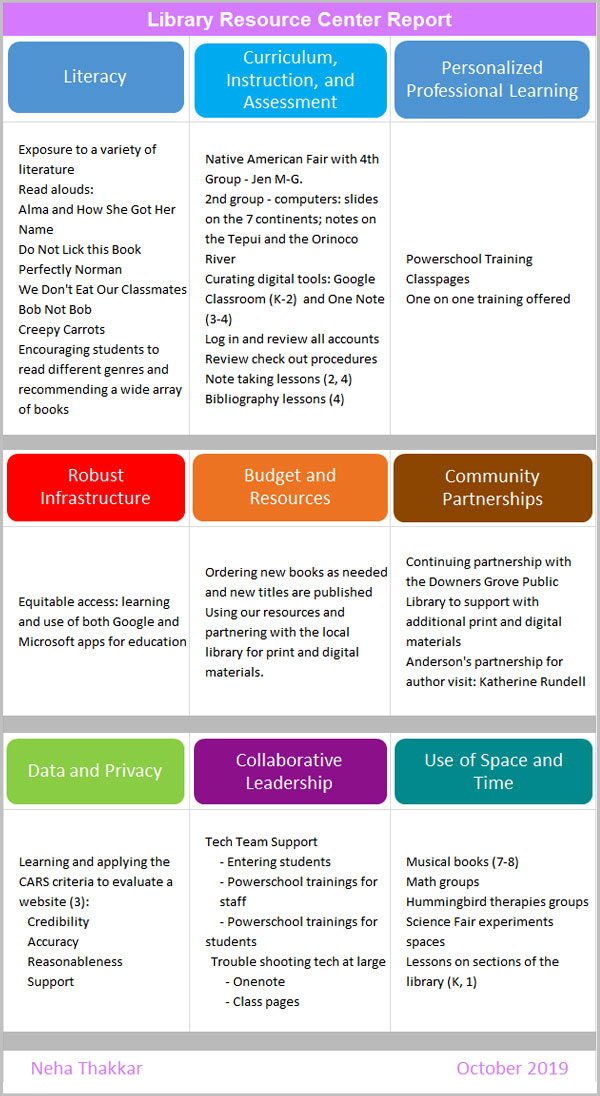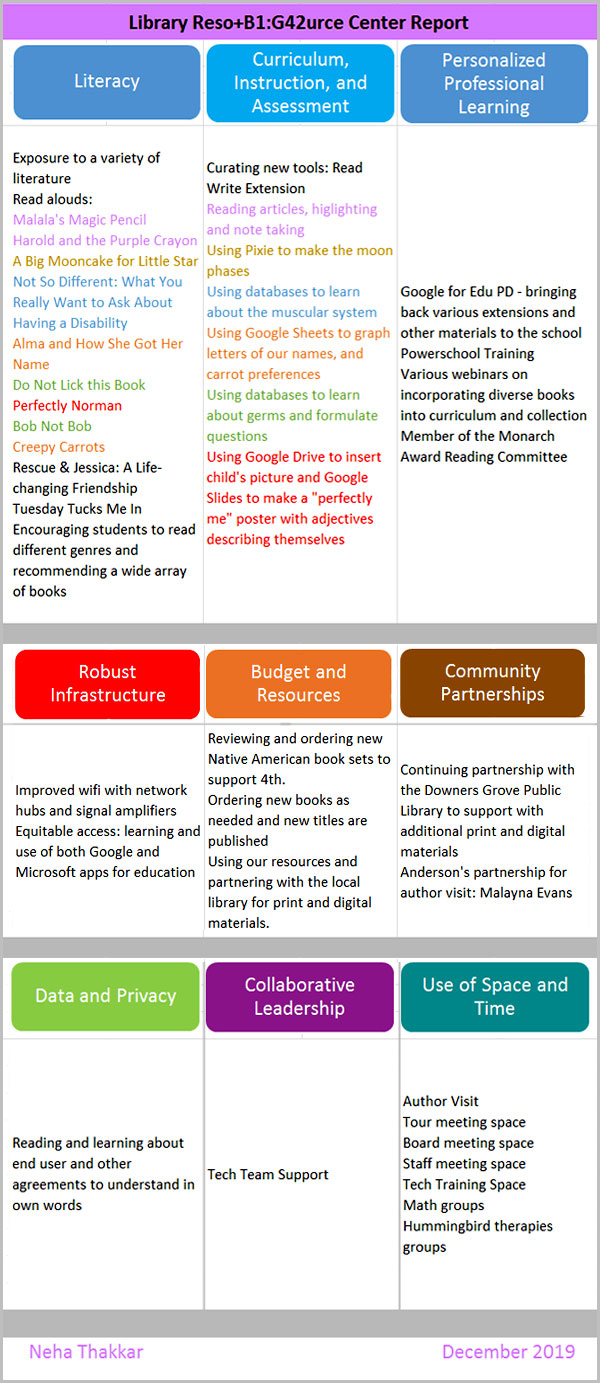Librarians, Prove Your Worth with a System for Tracking Progress Using Teaching Standards
The more we can “prove” our worth, the more librarians will be seen as an important partner in schools.
When you use a variety of tools to assess your work, it can be hard to know your true impact. From the AASL national standards to the Future Ready Schools framework, state standards, the Common Core standards, and so many more, it can be overwhelming and difficult to keep track. We all know we work very hard and feel like we are making a difference, but what if you could prove it? The more we can “prove” our worth, the more librarians will be seen as an important partner in Future Ready schools and libraries.
At the beginning of this school year, I needed a better way to share what students were learning in the library so my administration could easily follow and see the connection to the Future Ready Schools initiative.
After reviewing the standards and frameworks on the Future Ready Librarians website, I made my own report. I used Excel to keep it neat. For consistency, and to track growth, I put in the nine Future Ready headings—literacy; personalized professional learning; curriculum, instruction, and assessment; robust infrastructure; budget and resources; use of space and time; community partnerships; data and privacy; and collaborative leadership—to make a template. Then I matched the colors to the ones in the framework, to make it visually easier to read.
As the school year went on, I filled in different activities and the behind-the-scenes work that made those activities possible, in the appropriate box. Using this format, it was easy to see what I should be working on, where we might need support, and what the library was doing well. My administrator clearly saw the need for more personalized professional learning for me, and the variety of reading materials students were being exposed to without me having to send numerous emails.
As I review the months and lesson plans, I flag different activities with the designated headings. I have quick labels that I can stick into my lesson plan book and then when I write the report, I can easily type each activity into its corresponding heading. This also helps me see holes and reflect on what I should focus on for the next report. I made it more realistic by planning to write reports every two months instead of once a month. For me, I needed an efficient to share what was happening in the library with all stakeholders. It needed to be short, meaningful, and connected to our overall Future Ready School framework. As I work on my reports, I would like to incorporate our mission and vision, along with rewriting the library mission and vision. But that’s a report for another day.
Here are examples of my reports from October and December 2019:


RELATED
The job outlook in 2030: Librarians will be in demand
The job outlook in 2030: Librarians will be in demand
ALREADY A SUBSCRIBER? LOG IN
We are currently offering this content for free. Sign up now to activate your personal profile, where you can save articles for future viewing






Add Comment :-
Comment Policy:
Comment should not be empty !!!